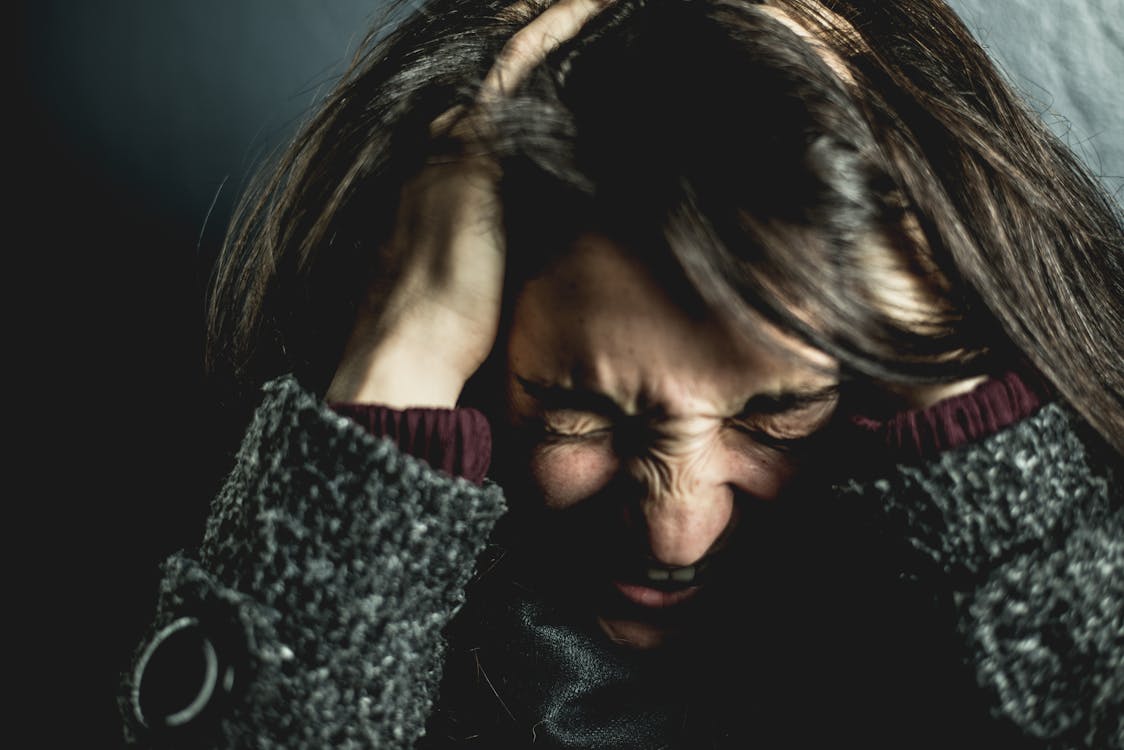Anxiety is a very common health condition that everyone faces at least once in their lifetime. But it can vary in intensity for some more than others. Anxiety disorder is the feeling of restlessness, fear and/or uneasiness. These symptoms are often followed by infrequent and fast heartbeats, sweat or tension. Usually, one might feel a temporary anxiety kick when faced with a challenging task at work or your home. This usually helps you cope, boosts your adrenaline, and helps on focusing. For people suffering from anxiety disorders, this feeling is not temporary and can stay around for a prolonged period. Often this feeling can be overwhelming.
What is an anxiety disorder?
For people suffering from an anxiety disorder, this feeling is not temporary. It gets worse over time and can hinder their day-to-day activities and their professional lives. It is important that people who are suffering from anxiety disorder talk to someone they trust or a physician as early as possible.
Are there any types of anxiety disorders?
Anxiety disorders can form in various forms,
- Phobia: Individuals who suffer from phobias experience a severe anxiety response towards something that does not present a significant danger. This can include a fear of heights, crowded places, certain insects or even snakes.
- Panic attacks: Individuals who suffer from the panic disorder tend to have panic attacks. They are sudden yet recurring episodes of acute fear that occur in the absence of an actual threat. These episodes can manifest rapidly and endure for several minutes or even hours.
- Generalized anxiety disorder (GAD): It is a disorder in which individuals suffer from prolonged anxiety due to day-to-day activities and situations that might not pose much threat to them as they perceive.
- Social anxiety: This is another common form of anxiety in which the individual has persistent and prolonged fear of being judged and watched by other individuals.
Causes of anxiety disorders
Researchers and scientists are still working on finding their actual cause. It is important to note that genetics, stress, environmental conditions and brain chemistry and biology can play a big role in anxiety disorders.
Are you at risk for anxiety disorders?
The risk for various types of anxiety disorder can vary from person to person and can depend on various backgrounds that person comes from. It has been seen that GAD and phobias were more common in women whereas, social anxiety and panic attacks affect both men and women. Certain risk factors to consider for anxiety disorders:
- Post-Traumatic Stress Disorder (PTSD) from events that happened in childhood or adulthood
- Genetic history of family members with similar or other mental disorders
- The feeling of non-belongingness and shyness in social situations such as parties and get-togethers.
- Drug withdrawal/misuse can cause anxiety disorder too. They often go hand in hand with alcohol overconsumption.
- Inferiority complex/low self-esteem is often seen as a potential risk factor in prospective patients with anxiety disorders.
What symptoms should I be checking for with anxiety disorders
The main symptom of anxiety disorder that you should be looking for is intense worry, panic, or fear. Anxiety disorders can make your daily basic habits more complicated than they should like trouble sleeping, concentrating, breathing, or even staying still. But it can vary depending on the type of anxiety disorder you are going through as well.

Some of the common symptoms that you should look out for in anxiety disorders are:
- Nausea and Dizziness
- Ruminating over issues and being unable to stop
- Unable to concentrate
- Heart palpitations and shortness of breath
- Sudden and prolonged feelings of panic and fear
- Unable to sleep and/or stay calm
- Hyperventilation
Diagnosis for anxiety disorders
It is best to avoid self-diagnosis when it comes to anxiety disorders. If you are seeing some of the symptoms mentioned above it’s best to address, it with your physician who will be asking more about your family medical history. This will also consist of running some basic tests that could be causing these symptoms.
There are a lot of other factors your physician will be looking such as, how long you’ve been having anxiety disorders, if you are actively on medication or if you or someone close to you has been exposed to drug abuse or its withdrawal. It is important to let them know that anxiety has been making it hard for them to do daily work or enjoy their personal life.
Physicians across the globe often recommend screening for anxiety disorders in children and young adults between the ages of 8-18 years and testing for any major depressive disorders (MDD) in young adults between the ages of 12-19 years.
Also Read: 6 Essential Yoga Poses for Depression
Treatment for Anxiety Disorders
There are two ways to treat the symptoms linked to anxiety disorders:

- Medication: Several drugs help with treating the symptoms of anxiety disorders. Such as Anti-depressants, beta blockers, antipsychotics, anticonvulsants, and benzodiazepines. Each of them depends on the intensity and the type of anxiety disorders the patient might be going through. Please consult your physician/therapist to check which medication might be best suited for your symptoms.
- Psychotherapy: Think of this as counseling which helps you build your thought process on how emotions affect your moods and behaviors. A certified mental health specialist sits through and understands your feelings and thought processes. Then recommends steps to manage the symptoms of anxiety disorders
- There is a very common form of psychotherapy in which individuals learn to turn their fear, panic, and negative thoughts into positive good thoughts. It is called Cognitive Behavioral Therapy (CBT). The individuals tend to learn ways to manage panic and worry without inducing anxiety.
Managing the symptoms of anxiety disorders
 If the individual finds themselves home alone or in an unfamiliar place, here are some very effective tips to bring down the symptoms:
If the individual finds themselves home alone or in an unfamiliar place, here are some very effective tips to bring down the symptoms:
- Avoid beverages and foods that have caffeine in them. Caffeine is a well-known mood-altering drug that can worsen symptoms.
- Avoid substance abuse. Alcohol and a lot of recreational drugs have been seen to worsen an individual’s anxiety disorder.
- You must continue the treatment recommended by your physician/therapist. Abruptly stopping them could have severe side effects and trigger the symptoms of anxiety disorders.
- Ensure that you do aerobic exercises once to twice a week (HIIT workouts, Running or taking the stairs). These releases endorphins helping with reduced stress and other symptoms of anxiety disorders.
- Eat and sleep well. Healthy diets ensure the individual’s energy levels are right and sleep helps keep the brain calm and composed. Irregular sleep and improper diets are often linked with the symptoms of anxiety disorders.
- Talk to a trusted friend or family member about how you are feeling or what symptoms you have been facing. It is ok to be vulnerable and talk about this with someone close and trustworthy.
Additional Help
There is 24×7 help always available if you are in an emergency and need help immediately. Reach out to Aasra or the National Suicide Prevention Lifeline.
Here are the closest hotlines by the region you are from Open Counselling





